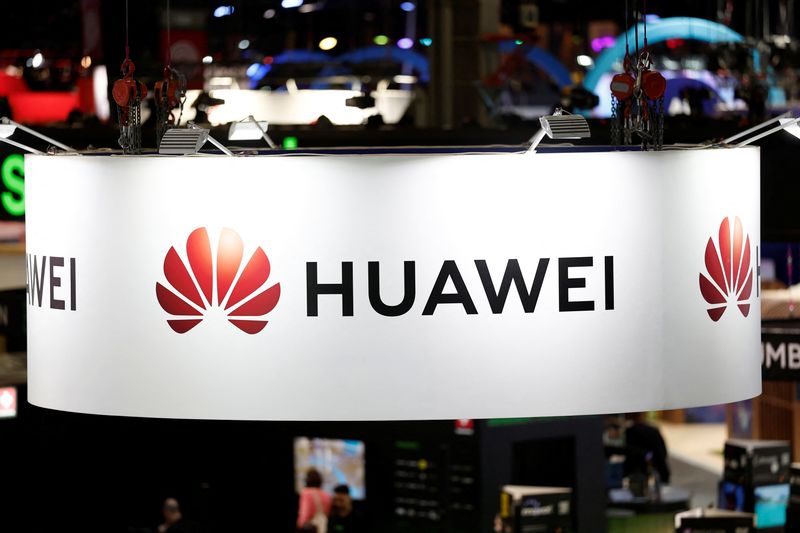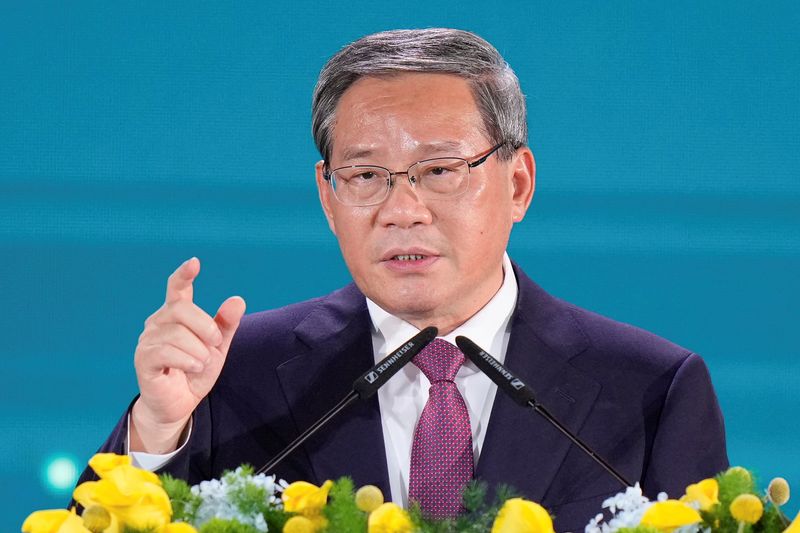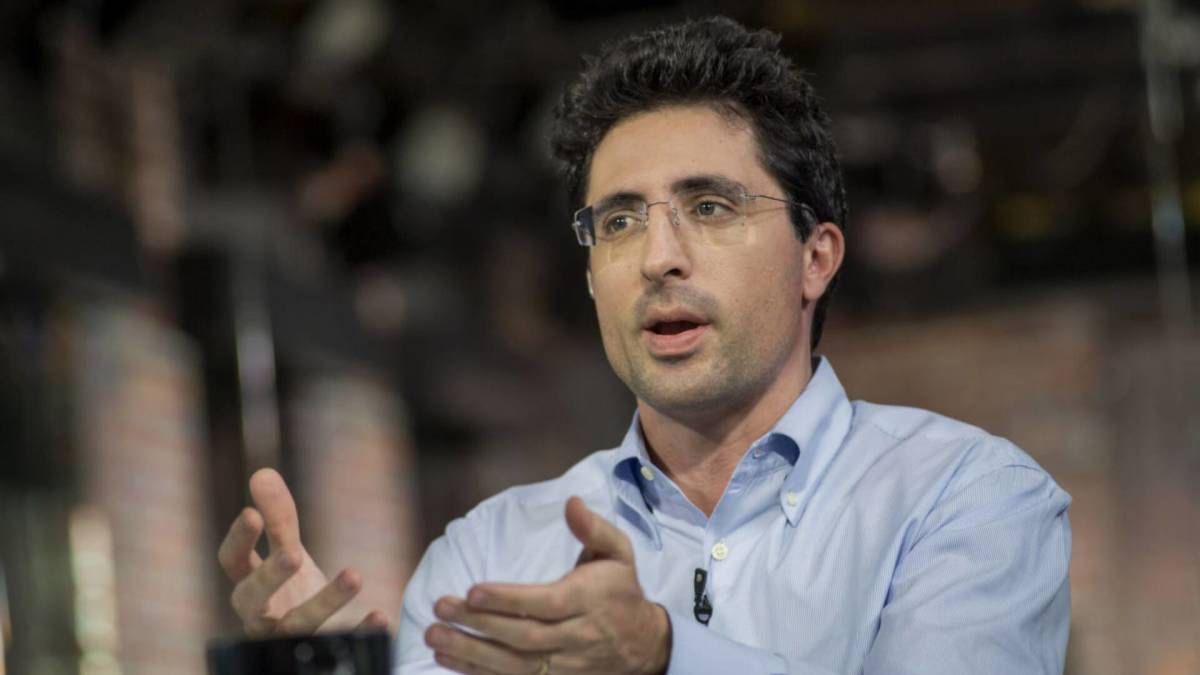See what’s trending right now
AI Infrastructurein Financial Markets
4 hours agoAI startup Anthropic eyes Middle East funding for a $150B valuation, while Morgan Stanley highlights new AI-driven opportunities, signaling strong growth and investor interest in AI and humanoid tech sectors.
Show me
Financial Markets
AI start-up Anthropic open to Mideast funds in talks for $150bn valuation
NeutralFinancial Markets
AI company Anthropic, a major competitor to OpenAI (the folks behind ChatGPT), is reportedly in talks to raise funds from Middle Eastern investors—a shift from its previous stance of avoiding Gulf sovereign wealth funds due to ethical concerns over their ties to authoritarian regimes. The potential deal could value Anthropic at a staggering $150 billion, signaling just how hot the AI gold rush has become.
Editor’s Note: This isn’t just another funding round—it’s a high-stakes moment for AI ethics and geopolitics. Anthropic had positioned itself as a more "principled" player, steering clear of controversial backers. Now, it might be bending its own rules to secure the massive capital needed to compete in the AI arms race. For the tech world, it raises tough questions: How much compromise is too much when the prize is dominance in AI? And what does it say when even the "good guys" start taking money from sources they once criticized?
What will drive the humanoid sector in 2H25?
NeutralFinancial Markets
The article dives into what’s likely to fuel growth in the humanoid robotics industry in the second half of 2025. It explores key factors like advancements in AI, cost reductions in hardware, and potential new use cases—everything from healthcare to warehouse logistics. Think of it as a sneak peek into the near future of robots that look and move like us.
Editor’s Note: Humanoid robots aren’t just sci-fi anymore—they’re becoming a real part of the tech landscape. This story matters because it hints at where big money and innovation might flow next, shaping industries and possibly even how we live and work. If you’re curious about the next big tech wave, this is a heads-up.
Morgan Stanley identifies next wave of AI-linked "alpha"
PositiveFinancial Markets
Morgan Stanley analysts are spotting fresh opportunities in AI-driven investments—what they call the next wave of "alpha," or market-beating returns. They’re highlighting sectors and companies poised to benefit from AI advancements beyond the usual tech giants, suggesting investors look deeper for undervalued plays.
Editor’s Note: Everyone’s been chasing AI hype around big names like Nvidia or Microsoft, but this report suggests the real money might be made in overlooked corners of the market. If Morgan Stanley’s right, it could mean a shift in where smart money flows—and a heads-up for investors who want to stay ahead of the curve.
Huawei shows off AI computing system to rival Nvidia's top product
NeutralFinancial Markets
Huawei just unveiled a new AI computing system designed to compete with Nvidia’s top-tier products, signaling a bold move in the global AI hardware race. The Chinese tech giant is pushing hard to establish itself as a major player in high-performance AI chips, even as U.S. export restrictions complicate its ambitions.
Editor’s Note: This isn’t just another tech announcement—it’s a direct challenge to Nvidia’s dominance in AI computing, which could shake up supply chains and innovation in the industry. If Huawei succeeds, it could give China a stronger foothold in critical AI infrastructure, but geopolitical tensions and chip restrictions add a layer of uncertainty. For businesses and researchers, more competition might mean better options (and maybe lower costs) down the line.
China proposes new global AI cooperation organisation
NeutralFinancial Markets
China is pushing for a new international body to oversee AI collaboration, signaling its ambition to play a leading role in shaping global AI governance. The proposal suggests a framework for joint research, ethical standards, and policy coordination—but also hints at geopolitical tensions, as China seeks to counterbalance Western-dominated tech alliances.
Editor’s Note: AI is too big for any one country to handle alone, and China’s move shows how the race for influence in tech is heating up. If this gains traction, it could mean more structured global cooperation—or just another arena for strategic competition. Either way, it’s a sign that the rules of the AI game are still being written.
How scaling post-training is offering gains in AI intelligence
PositiveFinancial Markets
Researchers are finding that AI models can become smarter even after their initial training—kind of like how humans keep learning on the job. By fine-tuning these models with additional data and techniques after deployment, they’re seeing noticeable jumps in performance. It’s not just about bigger datasets; it’s about smarter tweaks that make existing systems sharper.
Editor’s Note: This isn’t just tech jargon—it’s a big deal for how AI evolves. If models keep improving post-launch without needing a full rebuild, companies and researchers can adapt faster and cheaper. Think of it as software updates, but for intelligence. That could mean better chatbots, more accurate medical tools, or even smarter self-driving cars down the line. The race to refine AI just got a new shortcut.
Must build out infrastructure to achieve AI dominance: Onsemi CEO
PositiveFinancial Markets
The CEO of Onsemi, Hassane El-Khoury, is doubling down on the company’s push into AI while staying committed to its roots in the automotive sector. In a Bloomberg interview, he stressed that building the right infrastructure is key to staying competitive in the AI race—hinting that hardware is just as crucial as software in this fast-evolving field.
Editor’s Note: AI isn’t just about flashy algorithms—companies need the physical tech (like chips and sensors) to make it work at scale. Onsemi’s pivot shows how traditional industries, like automotive suppliers, are adapting to stay relevant in the AI boom. If they nail the infrastructure, they could become a behind-the-scenes powerhouse in both self-driving cars and broader AI applications.
IonQ CEO drops bold call on quantum computing’s tipping point
PositiveFinancial Markets
The CEO of IonQ, a major player in quantum computing, just made a bold prediction about when the technology will hit its "tipping point"—essentially, when it goes from experimental to game-changing. While he didn’t spell out an exact timeline, the statement signals confidence in the company’s progress and could stir up investor excitement.
Why World Pulse Now?
Global Coverage
All major sources, one page
Emotional Lens
Feel the mood behind headlines
Trending Topics
Know what’s trending, globally
Read Less, Know More
Get summaries. Save time
Stay informed, save time
Learn moreLive Stats
Articles Processed
6,797
Trending Topics
112
Sources Monitored
191
Last Updated
4 hours ago
Live data processing
How it works1-Minute Daily Briefing
Stay sharp in 60 seconds. Get concise summaries of today’s biggest stories — markets, tech, sports, and more
Why World Pulse Now?
Global Coverage
All major sources, one page
Emotional Lens
Feel the mood behind headlines
Trending Topics
Know what’s trending, globally
Read Less, Know More
Get summaries. Save time
Stay informed, save time
Learn moreLive Stats
Articles Processed
6,797
Trending Topics
112
Sources Monitored
191
Last Updated
4 hours ago
Live data processing
How it works1-Minute Daily Briefing
Stay sharp in 60 seconds. Get concise summaries of today’s biggest stories — markets, tech, sports, and more







